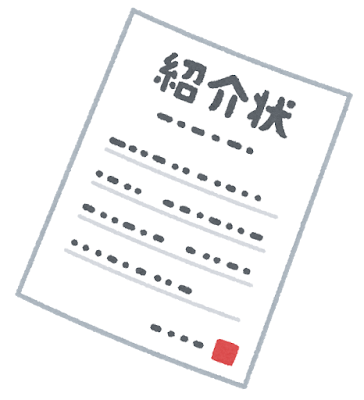精神科における解離性障害に関する会話例と英語フレーズ
**解離性障害(Dissociative Disorder)**は、記憶、認識、アイデンティティ、感覚の統合が乱れる精神疾患で、強いストレスやトラウマが原因となることが多いです。解離性障害の患者は、過去の記憶を忘れたり、他人のような感覚を覚えたり、現実から切り離された感覚を感じることがあります。
この記事では、解離性障害に関する診察時の会話例と、それに関連する英語表現を紹介します。
患者の設定
- 名前: Yuki Saito (30歳、女性)
- 職業: 会社員
- 主な症状: 記憶の一部が抜け落ちたり、自分が自分でないように感じることがある。
- 既往歴: 精神科への通院歴あり。
- 生活習慣: 強いストレスがかかると、現実感を失い、自分が他人のように感じることが頻繁にある。
1. 初診での問診と症状の確認
会話例: 解離性障害の疑いでの問診
Doctor: “Good afternoon, Ms. Saito. I understand you’ve been experiencing some episodes where you feel disconnected from yourself or like parts of your memory are missing. Could you tell me more about when these experiences started and how they affect your daily life?”
日本語訳: 「こんにちは、斉藤さん。最近、自分自身と切り離された感覚や、記憶の一部が抜け落ちているような体験をされていると伺いました。これらの体験はいつ頃から始まり、日常生活にどのように影響していますか?」
Patient: “It started about a year ago. Sometimes I feel like I’m not really here, like I’m watching myself from the outside. Other times, I can’t remember what I did for hours at a time.”
日本語訳: 「1年ほど前から始まりました。時々、自分がここにいないように感じたり、自分を外から見ているような感覚になります。また、時には数時間何をしていたか全く思い出せないこともあります。」
2. 解離性障害の症状確認と診断
会話例: 解離性症状の詳細な確認と診断の説明
Doctor: “It sounds like you may be experiencing symptoms of dissociative disorder, where people often feel detached from themselves or their surroundings. This can happen after experiencing significant stress or trauma. Have you noticed any specific triggers, like stressful situations, that seem to cause these episodes?”
日本語訳: 「おそらく、解離性障害の症状が見られるようです。これは、自分自身や周囲から切り離された感覚を感じることが特徴です。このような症状は、強いストレスやトラウマを経験した後に起こることがあります。これらの体験を引き起こす特定の要因、たとえばストレスの多い状況などがあると感じますか?」
Patient: “Yes, it usually happens when I’m really stressed at work or dealing with something emotional. It’s like my mind just checks out.”
日本語訳: 「はい、たいてい仕事で強いストレスを感じている時や、感情的なことに対処している時に起こります。まるで頭が空っぽになったような感じです。」
3. 解離性障害の治療法の説明
会話例: 解離性障害の治療法と選択肢
Doctor: “For dissociative disorder, treatment typically involves therapy, especially trauma-focused therapy or cognitive-behavioral therapy (CBT), to help you process past trauma and learn coping strategies for stress. In some cases, medication may be prescribed to help with anxiety or depression that often accompanies dissociative episodes. Would you like to learn more about these treatment options?”
日本語訳: 「解離性障害の治療では、主にカウンセリングを行います。特に、トラウマに焦点を当てた治療や認知行動療法(CBT)を通じて、過去のトラウマを処理し、ストレスに対処するための方法を学んでいきます。場合によっては、不安や抑うつを和らげるために薬物療法を併用することもあります。これらの治療法について、もっと詳しく知りたいですか?」
Patient: “I’ve tried therapy before, but I wasn’t sure if it was helping. I’m willing to try again if it will help me understand why this is happening.”
日本語訳: 「カウンセリングは以前に受けたことがありますが、本当に効果があったかどうかは分かりません。ただ、なぜこれが起こるのか理解できるなら、もう一度試してみたいです。」
Doctor: “That’s understandable. We’ll work together to find a therapy approach that works for you. It’s also important to recognize that recovery can take time, but with the right support, many people find they can manage their symptoms and reduce the frequency of dissociative episodes.”
日本語訳: 「それは理解できます。あなたに合ったカウンセリングの方法を一緒に見つけていきましょう。回復には時間がかかることもありますが、適切なサポートを受けることで、多くの人が症状を管理し、解離性エピソードの頻度を減らすことができます。」
4. 生活習慣の改善と再発予防
会話例: 生活習慣の改善と再発防止のアドバイス
Doctor: “In addition to therapy, there are lifestyle changes that can help reduce dissociative episodes. Regular exercise, maintaining a consistent sleep schedule, and practicing relaxation techniques like deep breathing or mindfulness can help manage stress. It’s also important to avoid situations that may trigger dissociation, especially during stressful periods.”
日本語訳: 「カウンセリングに加えて、生活習慣の改善も解離性エピソードの頻度を減らすのに役立ちます。定期的な運動、規則正しい睡眠スケジュールを維持すること、深呼吸やマインドフルネスといったリラクゼーションテクニックを実践することがストレス管理に役立ちます。また、特にストレスが多い時期には、解離を引き起こす可能性のある状況を避けることも重要です。」
Patient: “I’ve noticed that I tend to dissociate more when I’m tired or overwhelmed. I’ll try to get more sleep and start exercising regularly.”
日本語訳: 「疲れたり、圧倒された時に解離しやすいと感じています。もっと睡眠を取って、定期的に運動を始めてみます。」
Doctor: “That’s a great start. We’ll also work on developing coping strategies for when you feel dissociation starting, like grounding techniques to bring your focus back to the present moment.”
日本語訳: 「素晴らしい一歩ですね。さらに、解離が始まりそうな時に使える対処法も一緒に考えましょう。たとえば、グラウンディングテクニックを使って、意識を今この瞬間に引き戻す方法などです。」
学習ポイント
- 症状の確認: 解離性障害に関連する症状を確認するためのフレーズを学びます。例: “Have you been feeling disconnected from yourself or your surroundings, as if you’re watching yourself from the outside?“(自分自身や周囲から切り離された感覚を感じ、まるで自分を外から見ているように感じることはありますか?)
- 治療法の説明: 解離性障害の治療法を説明するフレーズを学びます。例: “Grounding techniques can help you stay focused on the present when you start feeling dissociated.“(グラウンディングテクニックは、解離を感じ始めた時に、現在に意識を集中させるのに役立ちます。)


